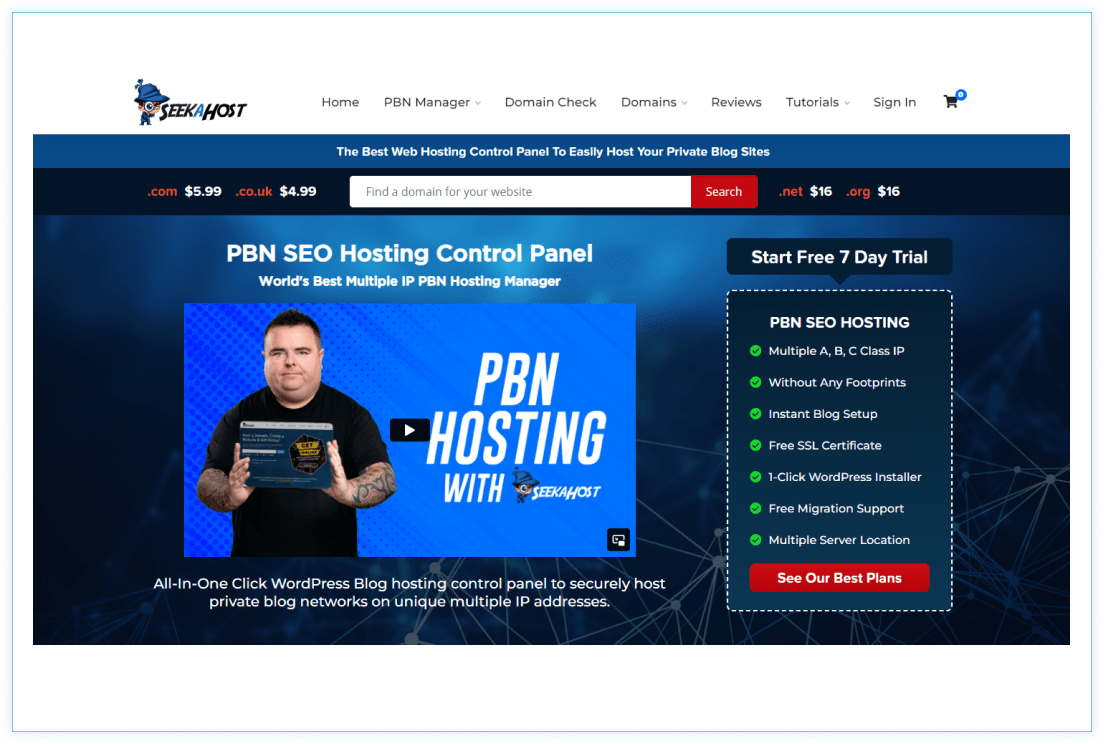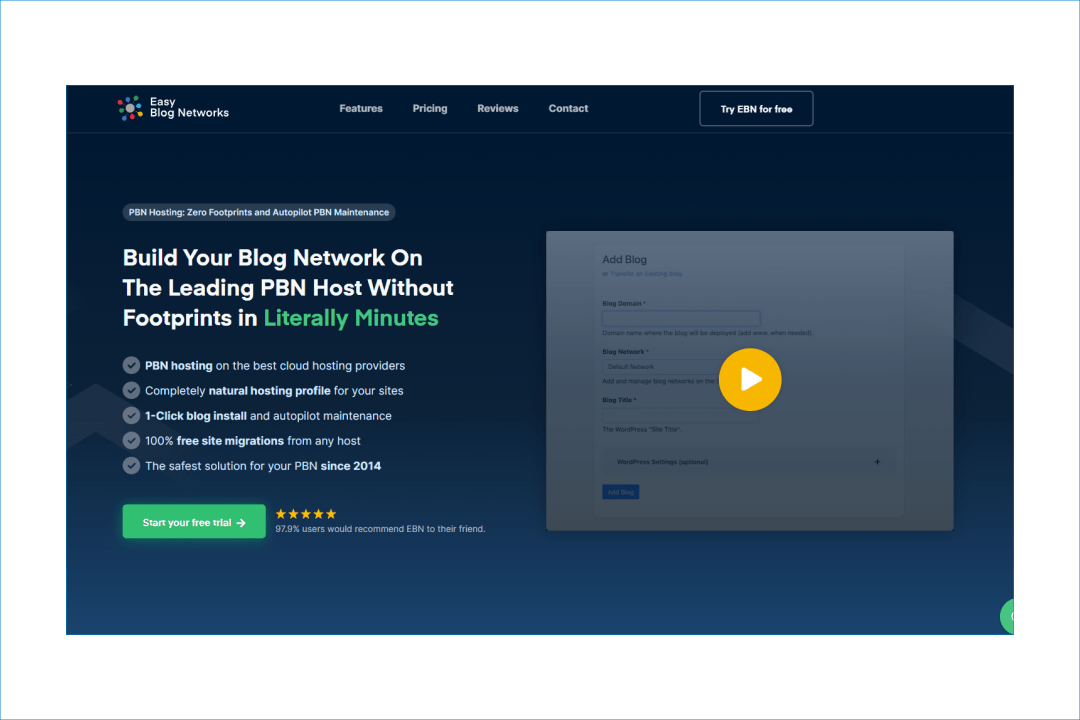
Search engines consistently explore websites, reviewing their content, evaluating inbound links, and examining various aspects. Your domain history provides a holistic overview of how your website has performed over time.
In this article, we’ll help you understand the meaning of domain history and give you the answer to how it can affect SEO.
Key Takeaways
- Domain history might play a role in search rankings but is not a direct ranking factor.
- A website with a history of violating guidelines or having different penalties will have difficulty rebuilding trust and improving its reputation with search engines.
- Websites that have been active for a long time are often seen as more trustworthy and authoritative than newer sites since search engines view them as having been around longer and, therefore, more reliable.
What Is Domain History?
Domain history refers to all available data on a domain name’s entire life cycle, including its current and past owners, age, current status, and more.
Reviewing the domain history allows you to understand the previous uses and purposes associated with the domain.
How Does Domain History Impact SEO?
Domain history can significantly impact SEO rankings. Search engines consider a domain’s history when determining its trustworthiness, authority, and relevance. Factors such as the length of time a domain has been active, changes in ownership, penalties from search engines, content history, link-building practices, and traffic all contribute to a domain’s history.
Keep in mind that domain history might play a role in search rankings but is not a direct ranking factor. Factors such as domain age, keyword analysis, and quality content all play a role in how high your page ranking is.
Understanding a domain’s history is crucial, especially when considering purchasing one, as it can help uncover potential weaknesses and avoid domains with a problematic past. Also, if a site has good backlinks from trusted sources, its chances of ranking high are increased significantly. Domain history can be an important asset for businesses looking to improve their online visibility.
The Positive Impact of Domain History on SEO
Understanding the SEO benefits of domain history is crucial for optimizing your website’s performance and enhancing its visibility in search engine results. Here are some key benefits:
Increased SEO Ranking Potential
The age of a domain plays a key role in SEO. The longer-lived websites have increased chances of being crawled and indexed by search engines. This extended presence correlates with improved visibility and rankings on search engine results pages (SERPs).
Boosted Brand Trust and Recognition
An established domain boosts brand trust and recognition. Customers prefer websites that have resisted the test of time, contributing to a positive brand image. We consider it a big SEO advantage when a website has a long online presence and many backlinks.
Simplified Backlink Building
Older domains have an easier time attracting backlinks from other websites. When external sites are familiar with your domain name, they’re more likely to link to your site. This chain reaction positively influences SEO rankings because quality backlinks play a significant role in boosting a website’s authority and credibility.
Trustworthiness
The consistent history of a domain improves its trustworthiness. Search engines prioritize this trust factor, recognizing websites with established track records as reliable and authoritative. This trust becomes a fundamental building block for achieving success in SEO.
Can Domain History Negatively Affect SEO?
Domain history can indeed negatively affect SEO. Here is how:
Negative Reputation Impact
A domain with a history of spammy or unethical practices can have a negative reputation. Search engines may remember past violations or penalties, affecting the site’s credibility and trustworthiness.
Previous Penalties
Domains with a history of penalties for violating search engine guidelines may struggle to recover. Even if ownership changes, the lingering impact of past penalties can affect the site’s ability to rank well in search results.
Content Issues
A domain’s history may include periods of low-quality or irrelevant content. If search engines have flagged this content in the past, it can negatively influence the site’s current SEO performance.
Backlink Profile Challenges
A domain with a history of poor-quality backlinks or participation in link schemes can face challenges in building a strong backlink profile. Low-quality links can lead to penalties and hinder SEO efforts. Also, a sudden change in niche or language suggests that you have started collecting different types of links, which can confuse search engines and create more challenges.
Changing of owners
Frequent changes in domain ownership can raise concerns for search engines. If a domain has changed hands multiple times, it may be viewed with suspicion, potentially impacting its SEO rankings. To learn who the previous owner of your domain was, read this article.
Difficulty in Rebranding
If a domain has a lengthy history associated with a specific brand or niche, rebranding efforts may face challenges. Search engines may have established expectations based on the historical content and focus of the domain.
Outdated Content Perception
Older domains may have outdated content that is no longer relevant. Search engines aim to provide users with up-to-date and valuable information, so outdated content can lead to lower rankings.
Algorithmic Changes Impact
Historical changes in search engine algorithms may have impacted a domain’s performance in the past. Adapting to these changes can be difficult, and a domain with a history of struggling with algorithm updates may continue to face obstacles.
Our Tips for Using Domain History
Effectively using domain history is crucial for boosting your website’s performance in search engine results.
Follow our tips to make the most of domain history:
- Research Before Buying: Before getting a domain, dig into its history – age, ownership changes, and past content. Make sure it fits your brand and SEO goals. In our work, we use the Wayback Machine to check out how the website on a domain looked like in the past. Watch out for content and language changes, sensitive niches like loans, forex, gambling, and adult, redirections, or many links from the homepage. All this can be a signal for spammy practices in the past, and you should avoid this kind of domain. Check out our article about How to Spam Check Expired Domains.
- Inspect Backlink Profile: Look closely at the domain’s backlinks to understand its link-building. Quality backlinks boost SEO, while poor ones can harm it.
- Verify Content Quality: Research past content to see if it aligns with your current SEO strategy. Fix any low-quality or irrelevant content.
- Handle Ownership Changes: Investigate why ownership changed, as frequent changes might be a red flag.
Conclusion
The domain’s history significantly shapes its SEO rankings, influencing trust, authority, and relevance. Whether your website is a newcomer or an established player, understanding and leveraging its history is essential for long-term success.
By resolving past challenges, staying in sync with current SEO trends, and drawing lessons from previous experiences, you can prepare your website for lasting visibility and credibility in the ever-changing online environment.























